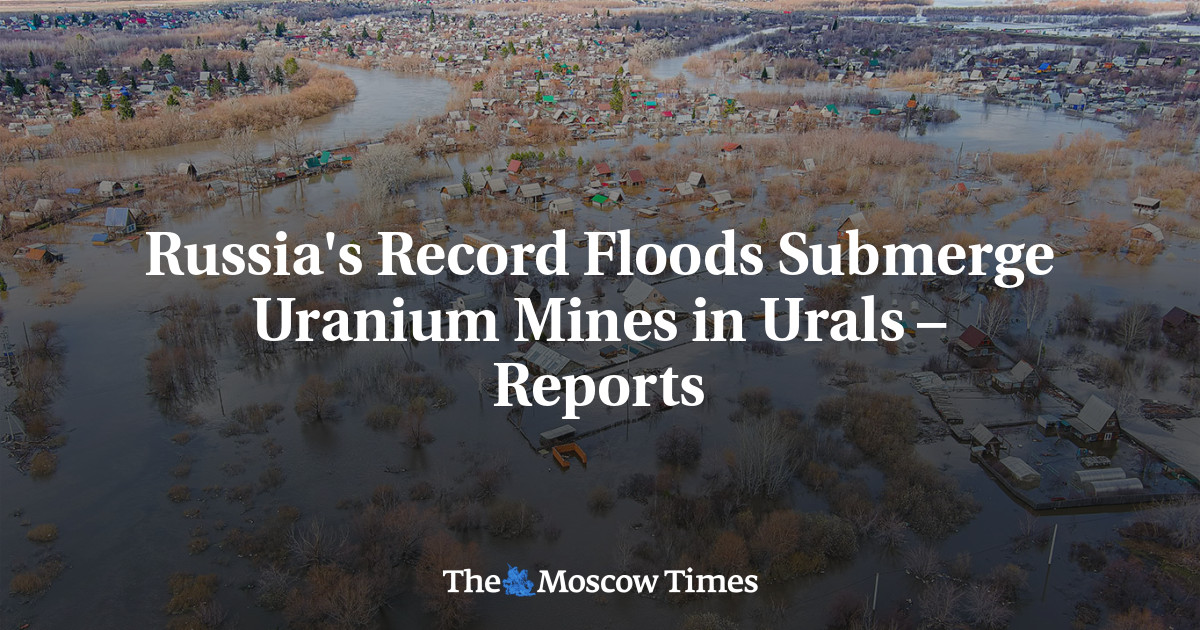
Russia’s worst flooding in decades has submerged Soviet-era uranium mines in the Kurgan region, the investigative news outlet Agentstvo reported Monday, sparking fears that radioactive and chemical pollution could seep into the Tobol River.
The Dobrovolnoye uranium deposit is located within the flood zone in Kurgan’s Zverinogolovsky district, Agentsvo reported, citing a map published by local authorities on April 11, environmentalists and videos published by local residents. Its mines are operated by an enterprise owned by state nuclear energy agency Rosatom.
The hundreds or even thousands of mine wells drilled into the deposit have compromised the natural protective barrier surrounding the uranium ore, Alexei Shvarts, the former head of Alexei Navalny’s Kurgan regional office who previously worked with uranium mining issues, told Agentsvo.
As a result, the latest flooding has likely sent radioactive substances into the river, environmentalists said, potentially affecting hundreds of thousands of people living near the banks of the Tobol downstream.
Local ecologists said that the mines have been accumulating “radioactive sludge” for years, while authorities have ignored numerous public protests against continued uranium mining in this area, which is prone to spring flooding from the Tobol River.
Andrei Ozharovsky, a nuclear physicist and antinuclear campaigner, told The Moscow Times that these mines, which were built in the 1980s, were previously flooded in 1994.
According to Ozharovsky, who surveyed the area several years ago, some wells that were not properly sealed now leak a radioactive solution of uranium salts, which has potentially made its way into the river.
Given that uranium is both radioactive and toxic, similar to other heavy metals, its presence in a river used for drinking purposes poses a threat even in small concentrations.
“Of course, the Tobol is a huge river, and so this solution has been greatly diluted. But the concentrations are higher than usual,” Ozharovsky said.
“This is undoubtedly dangerous because some people will drink this water, and uranium will enter their bodies. And internal radiation exposure is much more dangerous than external exposure,” he said.
Rosatom has previously dismissed protests against uranium mining at Dobrovolskoye as “radiophobia combined with ignorance,” claiming that the deposit is fully isolated from the Tobol River by natural barriers and ruling out potential leaks and river contamination.
It has not yet commented on Agentsvo’s report.